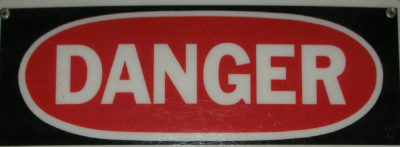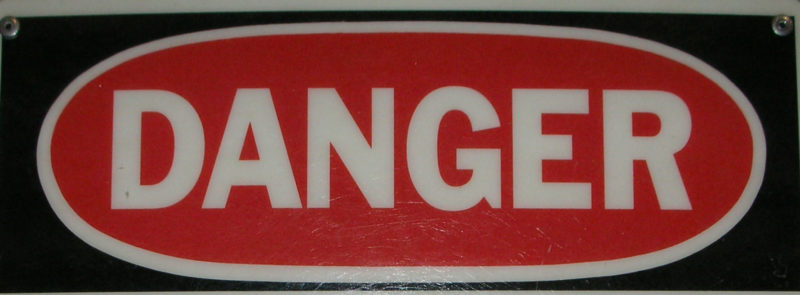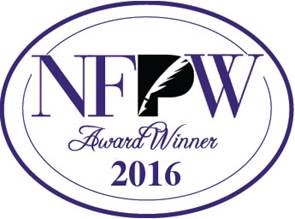Writing Contest Red Flags- What to Look For

Writing Contest Red Flags
Writing contests can be a great way for a beginning writer to gain publishing credentials. Contests force you to read guidelines and write to a deadline and word count, which is good practice for becoming a professional writer. They also give you experience with editing, revising, and proofreading your work. Contests are generally inexpensive to enter, and if you win, you may get cash, publication, or both. They also provide a chance to have your writing evaluated objectively. Publication gives you credibility as a professional writer and adds to your bio for future projects.
Even established writers can benefit from contests. Winning a contest can get your writing noticed, give you publicity opportunities, and provide networking potential. Additional publications help you build a fan base. You maintain ownership (check the guidelines carefully to confirm) and can sell your work elsewhere, so you are not giving anything away.
Unfortunately, there are some dubious contests out there, so it pays to do a little research. Here are some writing contest red flags to watch for:
Entry Cost
The cost to enter a short story or poem should be modest, usually no more than $20-$30. For book contests, the cost may be higher, but winning can boost sales, so it may be worth paying a little more, but an entry fee of $100 or more may be a red flag that the “contest” is really just a money-making machine. Another one of the writing contest red flags is when there are dozens of categories and writers are encouraged to enter their work in several categories (each of which require an entry fee, of course).
At the other end of the spectrum, be wary of “free” contests run by for-profit companies. If there’s no entry fee, they will be making money either by selling you services or selling your contact information (and any personal information you’re asked to provide) to other entities. Never disclose your Social Security number, bank information, or other sensitive data on a contest entry.
Rights
Examine the guidelines and any contracts you are asked to sign for the rights you are being asked to give away. You should never give “all rights,” “full rights,” rights for “perpetual online publishing,” or any other rights that basically give the ownership of your work away. Particularly with short stories and poems, legitimate contests should only be asking for “one-time,” “first-time,” or “first publication” rights. This means that once the work is published, you are free to publish it elsewhere.
Purchase Requirements
Contests that require entrants or winners to purchase books, classes, agent services, coaching services, editing services, plaques/trophies, merchandise, or anything else should raise a red flag. There are contests that exist solely for the purpose of selling products and services, which means they are not contests, they are a marketing tool. Be particularly cautious if the organization running the contest is a fee-charging literary agency, “book doctor,” editing service, or “vanity” publisher.
Judging
How are the entries judged (are they judged at all)? Who are the judges and what are their credentials? Although sometimes judges’ identities are kept confidential, any legitimate contest organizer should be very willing to supply information about the judges and the judging process. The contest guidelines, deadlines, and entry criteria should be posted on the website or available via email.
Prizes and Publication
Make sure that past contests have actually resulted in a published book (if that is what is promised) and that any prizes have actually been awarded. Contests that go on for extended periods (more than a year, in some cases) may be more concerned with accumulating entries (and the entry fees they bring) than awarding prizes. Another one of the writing contest red flags is a vague prize value (prize value based on the number of entries, for example).
Transparency
One of the biggest writing contest red flags is lack of transparency. Any time contest organizers refuse to divulge or are vague about basic information such as judging criteria and process, contest deadline, odds of winning, full cost of entry, any purchase requirements, rights requirements, or contest sponsorship, you should be skeptical.
Cost and Benefits vs. Odds of Winning
This is not necessarily a red flag, but consider the cost of entry (not to mention the effort required on your part) against the likelihood you will win anything and the value of the prize. Contests that are very costly or that receive thousands or even hundreds of thousands of entries, even if the prize is significant, may not be as worthy of entry (particularly for a novice writer) as a contest that receives only a few hundred entries and has a modest reward. Focus your efforts on legitimate contests where you have a reasonable chance of winning.
The Science Fiction & Fantasy Writers of America “Writer Beware” site is an excellent place to check the legitimacy of contests and learn more about writing contest red flags.
We take great care to ensure that the Rehoboth Beach Short Story Contest is legitimately organized, fair to entrants, and respectful to writers. If you ever have a question or issue, please contact us.









